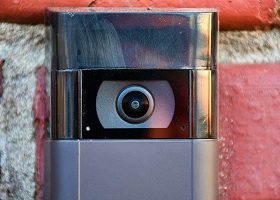Stolen email passwords are being used to hijack smart home security systems to “swat” unsuspecting users, the Federal Bureau of Investigation has warned. The announcement comes after concerned device manufacturers alerted law enforcement about the issue.
Swatting is a dangerous prank where police are called to a home with a fake emergency.
“Swatting may be motivated by revenge, used as a form of harassment, or used as a prank, but it is a serious crime that may have potentially deadly consequences,” the FBI statement said.
By accessing a targeted home security device an attacker can initiate a call for help to authorities and watch remotely as the swat occurs. The FBI points out that by initiating a call for help from the actual security device lends authenticity and anonymity to the hacker.
Requests to the FBI for the specific manufacturers were not answered. However, the device category often is found to be insecure.
“Recently, offenders have been using victims’ smart devices, including video and audio capable home surveillance devices, to carry out swatting attacks,” The FBI’s public service announcement read. “To gain access to the smart devices, offenders are likely taking advantage of customers who re-use their email passwords for their smart device. The offenders use stolen email passwords to log into the smart device and hijack features, including the live-stream camera and device speakers.”
In the past, the bad actors would spoof the numbers to make the call appear as if it were coming from the victim, the FBI explained. This new iteration makes the call directly from the compromised device.
“They then call emergency services to report a crime at the victims’ residence,” the FBI statement continued. “As law enforcement responds to the residence, the offender watches the live stream footage and engages with the responding police through the camera and speakers. In some cases, the offender also live streams the incident on shared online community platforms.”








